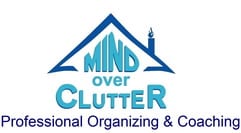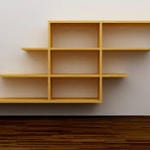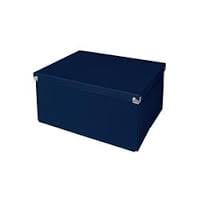Do I have a disease or a M.E.S.S.?
Reading Time – 5 minutes
People ask me, “Do I have a disease?” and I usually say, “NO, you have a M.E.S.S”. When your life becomes disorganized it is usually caused by one of four situations. If you are feeling overwhelmed, try looking at your M.E.S.S. this way.
M – Mechanical
Clutter can be caused because you don’t have the right type of storage. It is a mechanical problem.
- A drawer may be broken,
- There aren’t any shelves to put things on
- There aren’t any closets
- Your containers are too small or too big or you don’t have any
Solutions to a mechanical problem are simple. Look at what you want to store in the room. Decide if you are a visual person and would like things stored on shelves where you can see everything. Maybe being able to see everything bothers you, it is visual clutter to you. You would want to store things in cupboards or drawers.
The next step is to decide what type of containers you need to hold your stuff. Some people like to have clear containers other people like to use colour coded ones and still other people like them all to match. Whatever type you like make sure they will fit on the shelf or in the cupboard or drawer and hold the items you are storing. Buy the containers after you know what is going to be stored in the room. Make sure it fits into your budget.
E. Emotional
- Some people are very sentimental and find it difficult to let go of things. Try to remember that it is the relationship that you have with the person that is important not the item they gave you.
- Depression makes it hard to have enough energy to make decisions and organize your items
- Anxiety can clutter your mind so you find it difficult to make decisions
The solution to this situation is more complicated. You need to discover your relationship with your S.T.U.F.F. You need to recognize that you have Simply too much and take steps towards realizing that. Next, Take Time to set your goals concerning reducing what you have. The U is for Underlying causes. Examine what makes it difficult to let go of things. F is for how you Feel about having stuff. Do you feel comforted by having things around you or do you feel overwhelmed by too much? The last F is for how you Feel about having less. Does the thought of having less make you afraid or does it feel like you have space to breathe? I can help you with this process book a chat with me.
S. Situational
There are things that happen in your life that can put you into a state of chaos temporarily
- Having a baby
- Moving
- Divorce
- Seasonal Celebrations – Halloween, Christmas. Passover,
- The end of school or the beginning of a year
- Renovations
The solution to these situations is to remember it is a temporary situation. When things get busy ask for help.
S. Systems
If you have systems in place for getting things done then the work becomes easier because you don’t have to think about how to do it, who will do it, and when it gets done. Develop systems for
- laundry
- meal planning and grocery shopping
- collecting the garbage and getting to the curb or dumpster
- gift-giving
- feeding the pets
- doing homework
The solution for this situation is to spend some time planning. Setting up routines doesn’t make you a boring person. It is the opposite. You end up with more time to be creative and do things you enjoy.
You probably don’t have a disease that is causing you to be disorganized just a mechanical, emotional, situational or systematic problem that is contributing to your temporary disorganization. Determine which is the main cause of your disorganization and your problems can be solved so you have a great S.P.A.C.E.
Which situation causes you the most problems?
 Julie Stobbe is a Trained Professional Organizer and Lifestyle Organizing Coach who brings happiness to homes and organization to offices, coaching you virtually using Zoom. She has been working with clients since 2006 to provide customized organizing solutions to suit their individual needs and situations. She uses her love of teaching to reduce clutter, in your home and office. She guides and supports you in managing your time. If you’re in a difficult transition Julie can coach you to break-free of emotional clutter constraining you from living life on your terms. Online courses are available to help instruct, coach and support your organizing projects. Get started by downloading Tips for Reorganizing 9 Rooms.
Julie Stobbe is a Trained Professional Organizer and Lifestyle Organizing Coach who brings happiness to homes and organization to offices, coaching you virtually using Zoom. She has been working with clients since 2006 to provide customized organizing solutions to suit their individual needs and situations. She uses her love of teaching to reduce clutter, in your home and office. She guides and supports you in managing your time. If you’re in a difficult transition Julie can coach you to break-free of emotional clutter constraining you from living life on your terms. Online courses are available to help instruct, coach and support your organizing projects. Get started by downloading Tips for Reorganizing 9 Rooms.
Contact her at julie@mindoverclutter.ca
X – Facebook – Facebook group Organizing Mind and Space








Love this! You have really hit the nail on the head with this post! Thanks for sharing your wisdom!
I am glad you enjoyed it. Which one of the 4 scenarios is causing your clutter can change depending on what life changes are happening. You may experience them all at once or in any combination.
What a great acronym – this is a new one for me! Although I knew there were many different causes for clutter, I hadn’t considered that an individual may experience different ones at different times. Definitely food for thought!
I use M.E.S.S. so people can quickly look at a space and analyze it. Do I have workable storage, am I feeling overwhelmed and unmotivated, is life too busy to keep up with things or do I need to get into the habit of ……. Thanks for your comment
What a great acronym! You really nailed it.
Thanks Jonda. It is fun to talk about M.E.S.S. in this way. I feel like it gives me permission to call the client’s situation a M.E.S.S. just like they call it.
What a wonderful acronym! Thanks for sharing. I agree with each situation. Determining your main cause is the first step to decluttering and getting organized.
Thanks, Sabrina. It is an easy way to help clients analyze their space and for them to develop a plan. Once they can take control they can keep it under control.
The M.E.S.S. acronym is so useful in helping people identify what the source of their disorganization is from. I love how you take it further to explain solutions for addressing each of the areas- mechanical, emotional, situational, or systems. There can also be underlying conditions such as ADHD, OCD, or mobility issues, which make organizing more challenging, and those are good to consider too. But even with those considerations, many of the solutions fall into one of the four categories you suggested.
Thank you for pointing out other underlying considerations. I usually group the psychological and physical situations, ADHD, OCD and mobility into the emotions category. Although the acronym doesn’t completely cover all situations psychological and physical situations will also impact people emotionally. The “E” category is difficult to analyze and determine what exactly is making you feel like you can’t get organized.
This is a very helpful acronym, Julie. I think many people have more than one of the “M.E.S.S.” challenges going on. If people are struggling and can’t figure out what is wrong, this is a great place to start. Knowing what the problem truly is can be enough to get you on the right road to putting things in order!
This acronym and the categories you’ve delineated perfectly identify the obstacles and challenges people face. Whether alone or in combination with any of the the other three, unidentified, they keep people from their goals, but with your M.E.S.S. in place, they can destroy their lowercase m-e-s-s.
I think too many people either overemphasize the mechanical aspects (seeking to shop their way to an organizing solution) or underestimate their potential for damage (putting up with physical obstacles until they practically block them out). And certainly the “situation” applies not only to life situations, but also health situations (whether physical or neurological, and separate from the Emotional category of M.E.S.S.).
Thank you for the suggestion of putting physical and neurological conditions into the situation category. I usually talk about them in the emotional category because those conditions will usually also cause emotions that result in not feeling like getting organized.
No one better mess with that amazing acroynym – I love how you break organizing down into 4 key categories that cause disorganization. I’m sure this makes it easier for all to see how fixing these underlying problems will fix the mess.
In my experience, the Situational is WHY someone is coming to me for help. The Emotional is often WHAT they can’t deal with on their own. The Systems is HOW we fix most of the issues, especially if they are chronically organized. The Mechanical is usually the least of it except for a few rare cases. Thanks for a great post!
I love your sense of humour. That is a great analysis of how the 4 factors fit together.
I like M.E.S.S. it makes it easy to remember. I think my problems are situational, but for most of my clients, the hardest thing is their emotional attachments.
I too find situational is what I find hardest to deal with. I used to be good at dealing with many different situations at the same time, vacation planning, family schedules, party planning, work schedules. Now I try to deal with one thing at a time.